-
Posts
458 -
Joined
-
Last visited
-
Days Won
133
Content Type
Profiles
Forums
Gallery
Events
Articles
Blogs
Downloads
Community Map
Posts posted by Steve Krenz
-
-
So sad to hear this. And don't like the trend.
I feel forums like this offer a bit more personally than just a one way facebook post.
Where we can interact with each other and get to know each other over a longer period of time and content.
-Steve
-
 6
6
-
-
Tuesday March 17th, 2020
Topic: Solutions for Scale Boredom
7pm Central Time US
You can watch the lesson HERE.
Hey gang,Learning and practicing your scales is a fundamental part of any serious guitarists routine.
But, let's face it... playing scales up and down - over and over is BORING!
What if we could play scales in ways that they actually work in music and soloing?
I'll be showing you multiple ways to approach your scales that breaks you out from the boredom and actually into better guitar playing.
PLUS, we'll have a question/answer time regarding our triad series so bring your questions and I'll help you out as much as I can.
There will be music, laughs, giveaways and more. I look forward to seeing you there!
Watch on our Guitar Gathering YouTube Channel HERE
- Steve
-
Yes, with all of the travel restrictions and things shutting down, Bob contacted me and he is unable to get here.
He's a great guy and I look forward to having him in the future.
So, we will have a normal Tuesday night Live Lesson and I'll be giving you some exercises to break you out of being bored working on scales.
See you then!
-Steve
-
POSTPONED
THURSDAY March 19th, 2020
Topic: Bob Bennett Fingerstyle, Songs & Stories
7pm Central Time US
You can watch the lesson HERE.
"When I hear Bob Bennett's music, I'm reminded that there are still songwriters and artists among us who wear honest hearts on their sleeves." - Phil Keaggy
"A gifted poet and musician - Bob Bennett is a thought provoking artist. His insight challenges me. The timeless quality of his work will guarantee Bob a place in our music culture for years to come. - Amy Grant
Hey gang,
This is a live lesson that I've been trying to put together for quite a while.
It's a special THURSDAY edition of Live Lessons!
Let me introduce you to an artist that was foundational in my musical life - Bob Bennett. https://bobbennett.com/
A master singer/songwriter/guitarist who weaves his intricate playing and poignant lyrics with a James Taylor-esque ease, Bob Bennett combines amazing fingerstyle guitar with stories of faith and love.
Bob's album "Matters of the Heart" won Album of the Year in CCM Magazine and is listed 25th on their list of Best CCM Albums of All Time.
Bob's work has expanded over decades. Here are a few videos of Bob's amazing work...
There will be music, laughs, giveaways and more. I look forward to seeing you there!
Watch on our Guitar Gathering YouTube Channel HERE
- Steve
-
WOW!! What great fun. I wish I could have been there with you.
It looks like such an amazing time.
Honored that our Guitar Gathering family was so well-represented!
-Steve
-
Tuesday February 25th, 2020
Topic: TRIADS: Seventh Chord Triads
7pm Central Time US
You can watch the lesson HERE.
It's been a tremendous series on Triads. This week we will finish it up with Seventh Chords!
These "seventh" triads will add some funk to your playing and create some classic blues progressions.
If you missed the first lesson on Major Triads you can watch it here. And you can download the FREE 10 page book of examples, forms and progressions HERE.
If you missed the second lesson on Minor Triads you can watch it here. And you can download the FREE pdf of examples, forms and progressions HERE.
This week we will continue with Seventh Chord Triads - their inversions and chord patterns.
It's sure to be a great live lesson!
There will be music, laughs, giveaways and more. I look forward to seeing you there!
Watch on our Guitar Gathering YouTube Channel HERE
- Steve
-
 6
6
-
 1
1
-
-
Great news.
- Steve
-
Thanks Sam.
Learn all you can! Sorry about the fire hose!

-Steve
-
Let me mention something on string lubricants and oils...
While their marketing may make claims to "improve your speed" and "reduce string noise", I have not found any of that to be true.
-Steve
-
 3
3
-
-
Ahhh.... String Squeaks - the curse of playing wound strings.
WHY DOES IT HAPPEN?
When you rub your fingers along the wound strings (usually the 2nd-6th strings), the ridges on your finger rubs against the ridges on the wound string and it causes the squeak.
Notice how your fingers don't produce a squeak on the 1st or 2nd string because those are not wound strings.
HOW CAN I MINIMIZE IT?
Avoid sliding your fingers across the strings when you change chords.
When you play a chord put the pressure down onto the fretboard to get the note or chord and then, after the note or chord, remove the pressure straight up without shifting one way or the other.
You have to be much more careful when you shift between chords. Don't keep your fingers against the strings when you shift. Make sure they are not touching the strings as you shift.
So, why doesn't Tommy Emmanuel squeak as much? Because he's Tommy Emmanuel and he is VERY good at not rubbing his fingers on the strings when he shifts between chords.
Practice shifting between chords by moving your fingers completely off the fretboard and not letting them still touch as you shift between chords.
OTHER FACTORS
Certain types of strings can certainly make squeaking more pronounced. But, overall, the issue is more about paying more attention when you are shifting between chords to not have your fingers make contact with the strings.
You can always use flatwound strings and you will not squeak at all. BUT, your sound will sound very muffled because it is the winding on the strings that makes the strings sound sparkly from the higher frequencies.
I hope this helps.
It takes practice. You'll get better at it.
-
 4
4
-
 2
2
-
-
Dave,
Great question and I knew when I talked about it last night that there would be some confusion on it.
So, here we go. I'll try to make this as concise as possible.
The Question: Why is the V chord in a minor key a dominant 7th? Shouldn't it be a minor?
The Short Answer: Yes, technically the V chord in a minor key should be a minor chord. BUT, dominant 7th chords work so great at leading to other chords that we use them to lead to minor chords just like we use them to lead to major chords.
The Longer Answer...
Let's go on a little music theory journey...
THE HARMONIZED MAJOR SCALE
If I harmonize a major scale in triads you get this...
I - iim - iiim - IV - V - vim - vii dim
If I harmonize a major scale in four note chords (sevenths) you get this...
Imaj7 - iim7 - iiim7 - IVmaj7 - V7 - vim7 - vii half-dim7
RELATIVE MAJOR AND MINOR KEYS
Each major scale derives a key signature that is also shared by it's relative minor key.
For example, a C major scale and A minor share the same notes and same key signature. They are the same combination of notes. A C major scale is C-D-E-F-G-A-B-C and an A (natural) minor scale is A-B-C-D-E-F-G-A. (The same pitches, just starting on different notes.)
THE HARMONIZED NATURAL MINOR SCALE
With this in mind, I could harmonize an A minor scale and it would end up with the same combination of chords as the harmonized major scale - just starting on a different note. Because it starts on a different note, the harmonized minor scale would be this...
im - ii dim - bIII - ivm - vm - bVI - bVII or Am - Bdim7 - Cmaj - Dm - Em - F - G - Am (The same chords as the harmonized C major scale - just starting on A and named in relation to A.)
So, the five chord is a minor chord.
Playing chords like this sounds very modal and medieval.
DOMINANT CHORDS ARE GREAT! LET'S USE THEM IN MINOR!
So, along came some wild monk in the middle ages that said to himself... "Hey, these new fangled Dominant 7th chords work great going to major chords. Let's try using one to go to a minor chord!"
So, he scratched out his Gm chord on his parchment and wrote in a G7th and promptly put it in front of a C minor chord.
(He relished his forbidden musical concoction and somehow he escaped being burned at the stake for being a heretic.)
A NEW HARMONIZED MINOR SCALE WAS BORN...
Just changing one chord - substituting in a V7 for the vm, the new minor chords became...
im - ii dim - bIII - ivm - V7 - bVI - bVII
Then came along a fancy new version of the natural minor scale came along and it was called the Harmonic Minor Scale!
in C it would be C - D - Eb - F - G - Ab - B - C
We love this new leading tone (B) which resolves so well to C!
So, that's my humorous take on why the V chord is still major in a minor key.
Learn all you can!
- Steve
-
 4
4
-
 3
3
-
-
-
On 2/12/2020 at 2:54 PM, revster said:
Thanks Steve for this lesson. I have an idea about using chord structures like this for a while so I could go further up the neck but have not been able to form a structured process to work on the idea. You gave me what I needed! One question though: you mentioned a guitarist would not usually need to know triads on 6 through 4th strings, Why? maybe staying away from Bass guitar? thanks AGAIN. I have used neck diagrams with all notes to picture these triads in the past. it has help see them
Revster,
Great question about why I didn't include the lower forms on string sets 3rd - 5th and 4th-6th.
Here's the short answer. I'm a sucker for worksheets and could have gleefully added another 10 pages of exercises using the lower forms, but here's the deal.
Closed voicing triads done in lower registers start to sound muddy making it hard to distinguish the notes.
While, the lower voiced triads might be helpful in recognizing a few shapes and patterns, other than that I haven't found that they are used much in actual playing as chords. So, I decided to just focus on the upper string forms.
But the helpful thing is that the major triad shapes on the 3rd-5th strings are the identical shapes for the same chords on the 4th-6th strings. (This is because the relationship of the tuning of the strings, in the interval of a fourth, is identical on all of the strings, 3rd-6th.)
The lower the register that you play in the wider of the intervals needed to sound good.
Hope this helps. Learn all you can! - Steve
-
 2
2
-
-
Wonderful.
- Steve
-
Great job. Very musical.
Now that you have the notes down, you can try to polish the sound a bit. The next step is to try to let each chord ring out as much as possible.
This song is always special to me. Teri was a dear friend while I was in college. We were on the road touring together a few summers in a band that played jazz arrangements of hymns at churches all over the US.
We developed a great friendship. Nothing romantic - just a good friend.
A few years later she was going through a tough time and I went up to hang out for a weekend with her at her parents home. I'm not sure what the situation was but somewhere over the weekend I found myself at their place with no one home. So, I grabbed the guitar and eventually stumbled on this melody.
Years later when we were creating the Fingerstyle course I included it because it illustrated 10ths well.
I've since lost touch with Teri and haven't seen her since those days 30 or so years ago. I think of her from time to time and pray that she is doing well.
-Steve
-
 4
4
-
-
Topic: TRIADS - Major Triads (1/3)
I'm excited to start a new teaching series on Triads!If you're tired of playing the same old chords in the same old places let's learn some techniques to play great sounding guitar parts with chords all over the neck.
This will be a three week series continuing on for the next three Tuesdays.
Download the FREE 10 page book of examples, forms and progressions HERE.
Watch on our Guitar Gathering YouTube Channel HERE- Steve
-
 2
2
-
 1
1
-
-
Tuesday February 4th, 2020
Topic: Brazilian Jazz Guitar with DuoVersal
7pm Central Time US
You can watch the lesson HERE.
Brazilian guitarist Paulo Oliveira leads this exciting duo through traditional Brazilian songs to pop melodies creating incredible arrangements and rich harmonies.
Here are a few videos...
It's sure to be a great live lesson!
There will be music, laughs, giveaways and more. I look forward to seeing you there!
Watch on our Guitar Gathering YouTube Channel HERE
- Steve
-
 2
2
-
-
-
Looking forward to tomorrow's live lesson. Any questions for Greg about guitar care or repair?
- Steve
-
Ok,
Thanks to some quick back and forth with the IT department I think I've officially changed the permissions.
So, everyone that is a member (not a guest) should be able to comment now.
Let me know if it works on your end.
You might need to refresh the page.
- Steve
-
 1
1
-
-
Wow, that is so strange.
Let me check the back end a bit and see if I can find out why. On my end, there is a clear box for comments just below the post.
Weird.
- Steve
-
Josev,
Thanks for touching base. I tested it on my end and it seems to be working. Try it again and let me know what it is telling you on your end.
- Steve
-

Dear Guitar Gathering family,
I just found out that our good friend and long time guitar family member, Paul Opitz (aka Opie) has finished his battle with throat cancer and passed away on December 28th.
Paul was a faithful supporter of all that we do here. He was a faithful attendee to many Guitar Gathering conferences and for many years was our defacto videographer of the conferences.
But more than that, he was a good friend, a kind and gentle man.
You can learn more about him, his wit and his gut wrenching walk with his terrible disease here in his blog... http://massivelyuninformed.me/
You can see his coverage of our Guitar Gathering conferences here... http://massivelyuninformed.me/category/guitar/
Paul was one of the good ones and his presence in our guitar family will be sorely missed.
-Steve
-
 3
3
-
-
Christopher,
Great question.
The answer is, as someone said, yes, and no.
When you are just starting an unfamiliar task, new chord or finger combination, then look when you need to. You need to have the visual reference while your fingers are trying to figure out where to go. Especially if you are working on a new skill - and the fingers are still finding their way - then look as you need to. Don't feel bad about it. Look until your fingers can find their own way to the places they need to go.
BUT, yes... you do want to eventually wean yourself off of this.
Where you're wanting to go is a place where the fingers can go where they need to go without the constant visual reminder.
It's easy to fall into an unhelpful routine of ALWAYS looking at your hands, then back at the music, then your picking hand, then the music, then the fretting hand and so on. This will eventually slow your progress down (plus give you a neck ache!)
So, when you are first learning a new chord or finger pattern then look at your hands. Look as much as you need to to get your fingers familiar with their new challenges.
But, once your fingers know where they need to go, then begin trying to keep your eye on the music and let your fingers find their own way. You'll find they generally will do pretty well in finding where they need to go without you having to guide them by looking. Sure... you might miss a note here and there but don't worry about that. Your fingers will find where to go.
Glancing at your fretting hand is always something you will need to do from time to time, especially if there is a big jump on the neck that you need to make. But, in general, once you've worked out where your fingers need to go then try to keep your eyes on the music and let your fingers feel where they need to go.
Hope this helps!
- Steve
-
 5
5
-

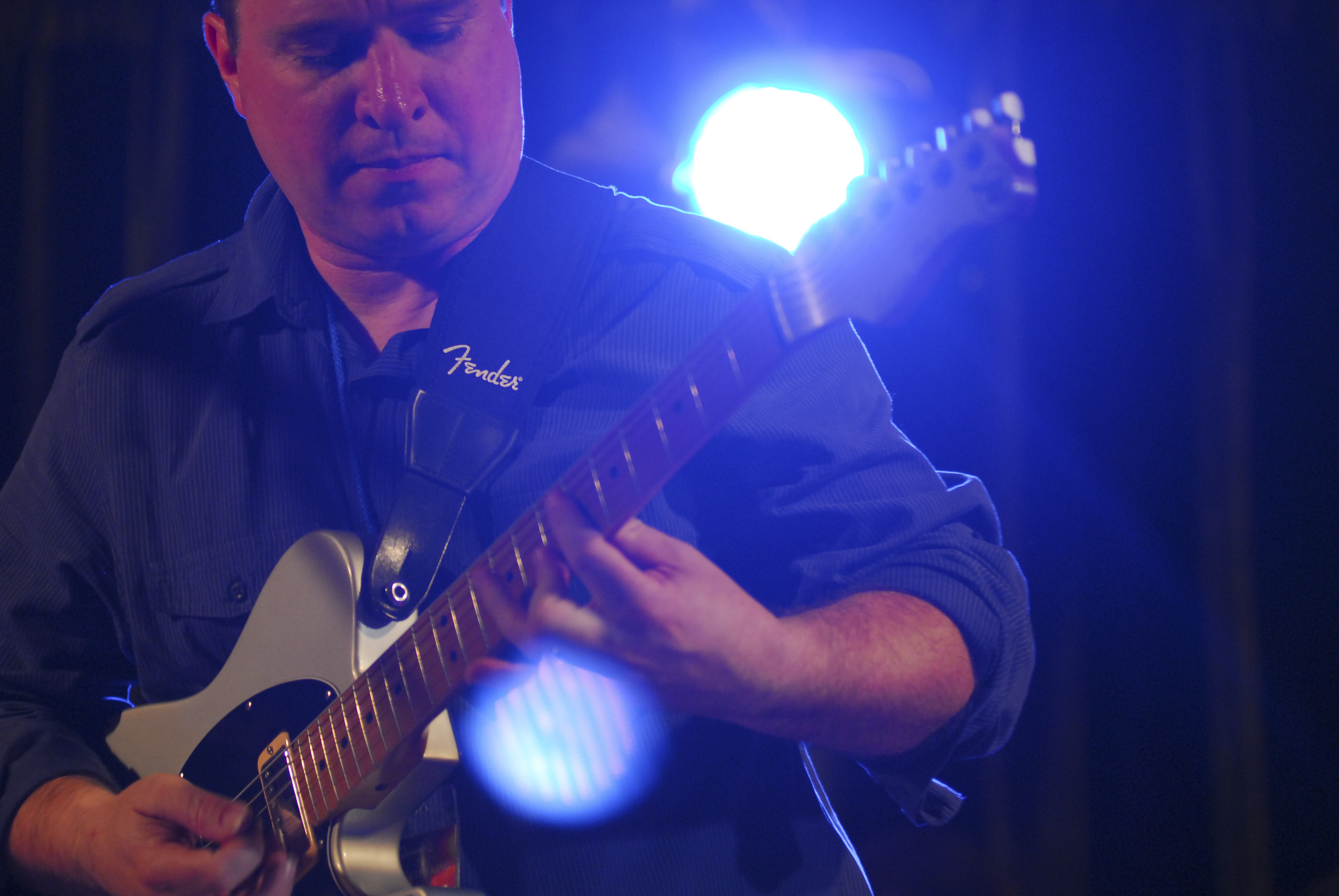
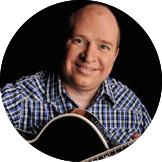
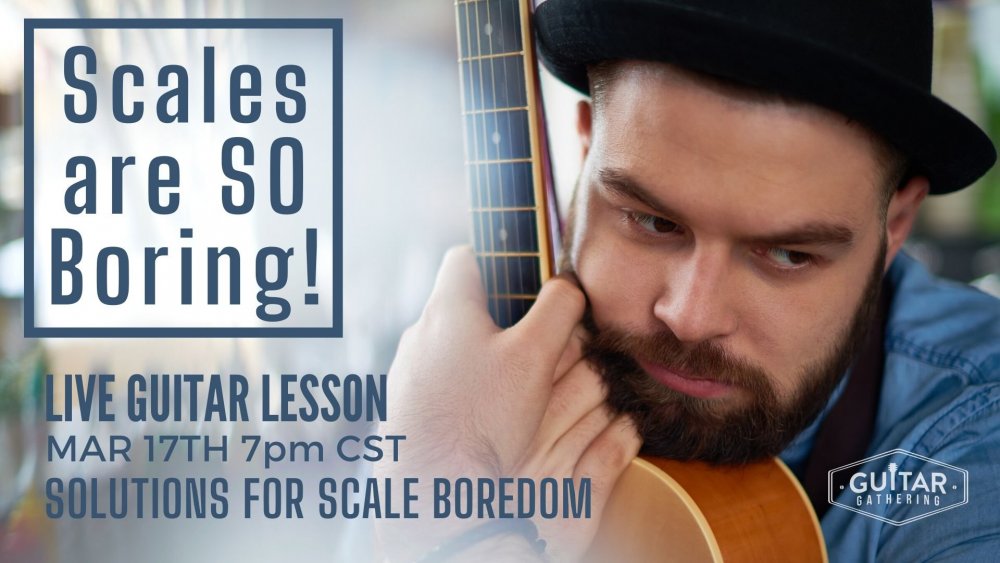
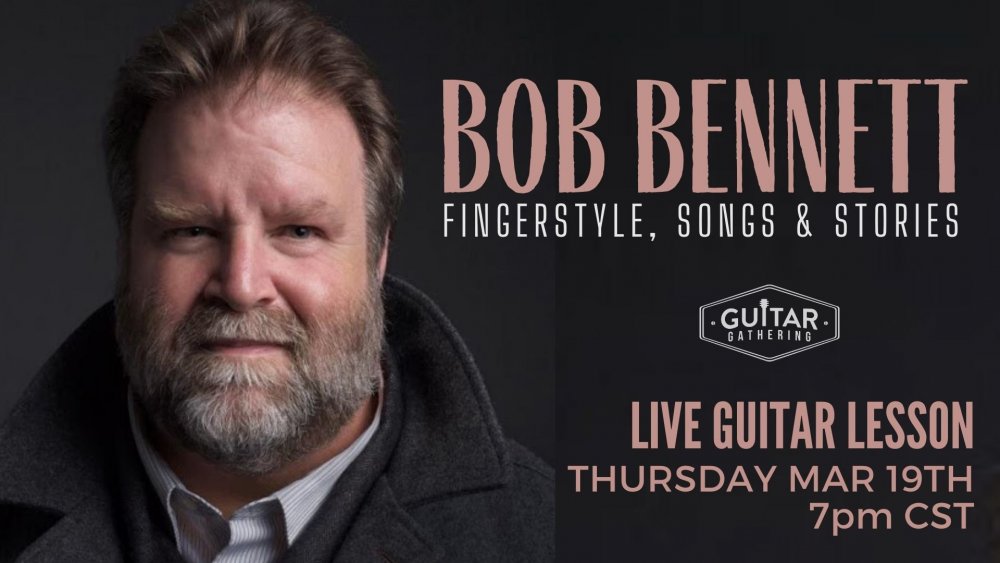
.thumb.jpg.d5c0255d59948d479b3b565f299c3f67.jpg)
.thumb.jpg.73adbcc2634dfcdda179007626d3446c.jpg)
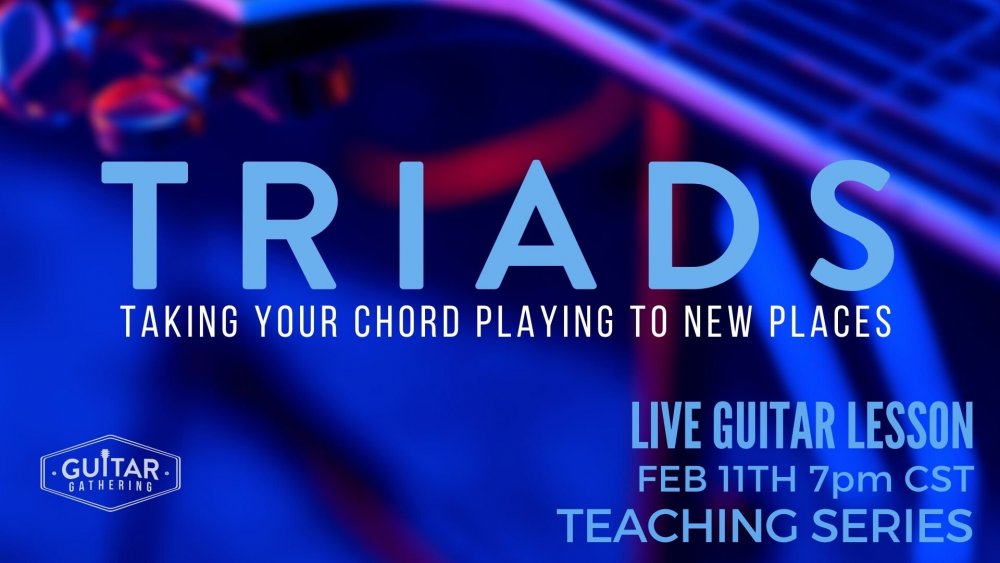
.thumb.jpg.2058b64e895c516b033ff91d7080a869.jpg)
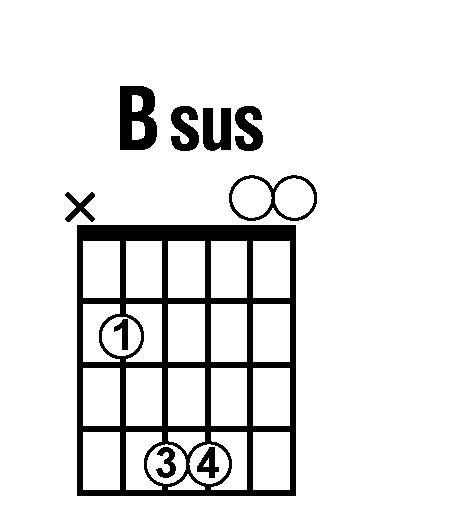
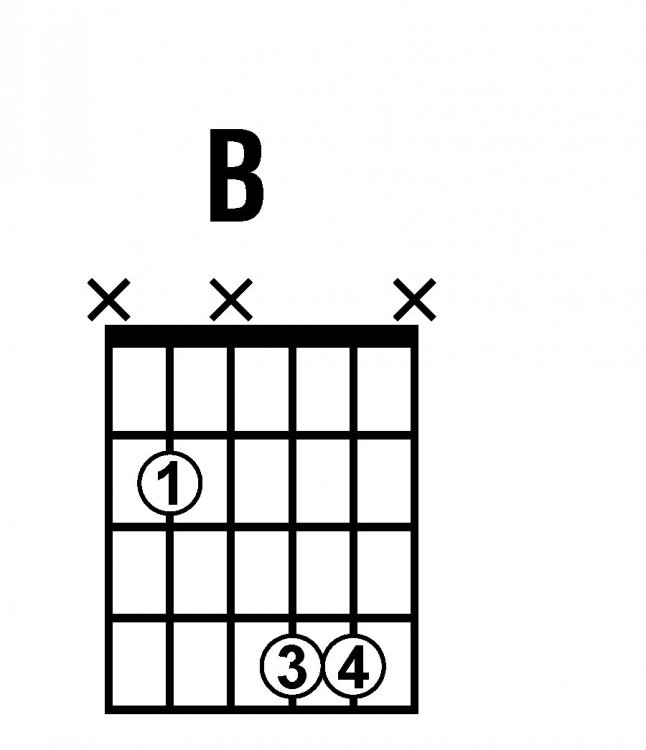
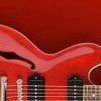

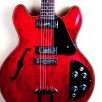
Tonight's Audio Problems
in Weekly Live Lessons & Guitar Workouts
Posted
Hey gang,
So sorry about tonight's audio problems. After a little post-broadcast trouble-shooting I found the problem and we should be much better next time. I'll re-record the lesson in the morning and it should be up by the afternoon.
Thanks for your patience as we break in an entirely different video and audio system for tonight.
We'll get the bugs worked out and it will only get better from here!
Thanks again for your patience. The new and improved version will be up tomorrow.
- Steve